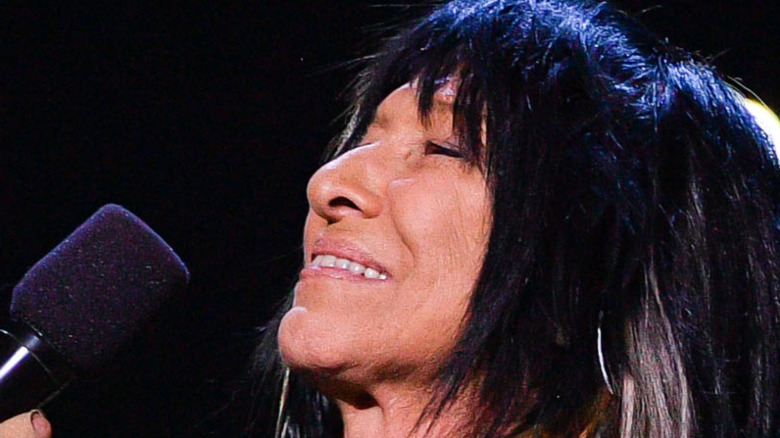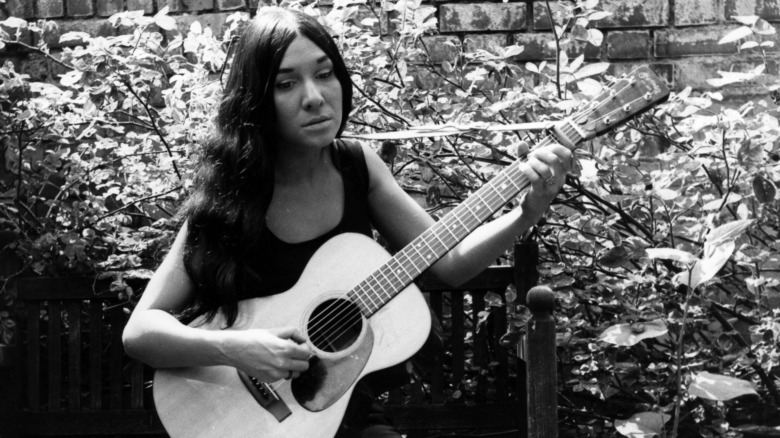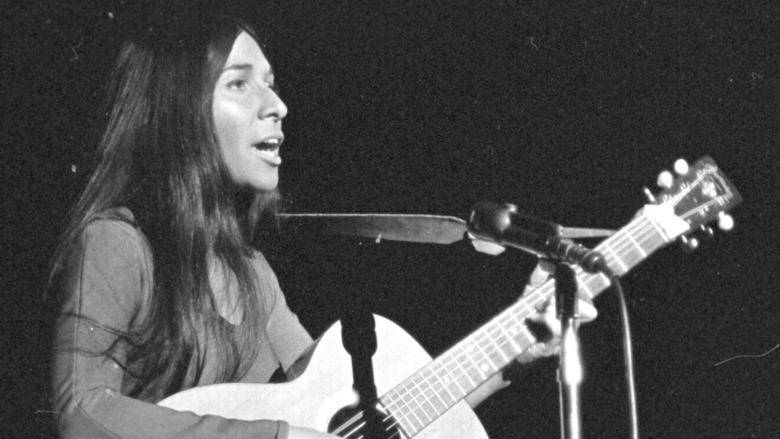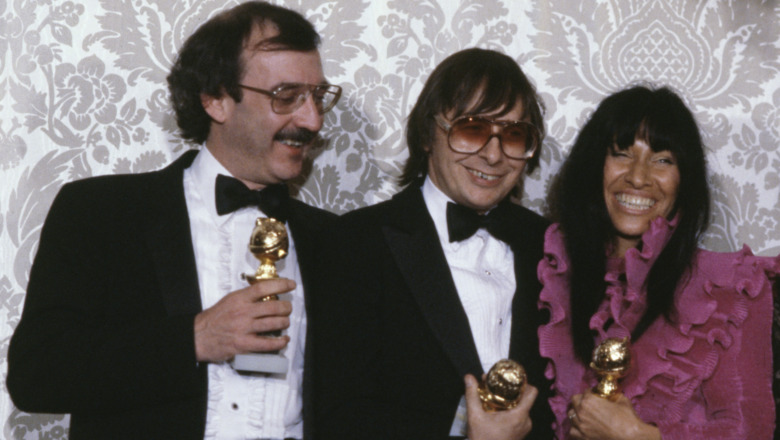Buffy Sainte-Marie: The First Indigenous Person To Win An Academy Award
Despite the fact that over 3,000 Oscar statuettes have been given out in the history of the Academy Awards, per the official Oscar websites, very few of those have ever been awarded to an Indigenous person. The most recent recipient was Taika Waititi in 2020, who was the first New Zealander of indigenous Māori descent to win an Oscar, and the first Indigenous person to win an Oscar for Best Adapted Screenplay, according to Mashable. In 2019, Cherokee-American actor Wes Studi received an honorary Oscar.
But in 1983, Buffy Sainte-Marie, a member of the Cree First Nation, made history when she became the first Indigenous person ever to win an Academy Award when the song "Up Where We Belong" that she co-wrote for the film "An Officer and a Gentleman" won for Best Original Song.
Throughout her life, Sainte-Marie has been as fierce an activist as she has been a musician. And despite blacklisting and surveillance, neither one of her passions ever faltered. As of 2021, she is "still touring and winning awards at 80 — yikes! — until COVID sent everybody home," as she says to Teen Vogue. This is Buffy Sainte-Marie: The first Indigenous person to win an Academy Award.
Who is Buffy Sainte-Marie?
Buffy Sainte-Marie was born in the Piapot Cree First Nation reserve in the Qu'Appelle Valley, Saskaatchuan. When Sainte-Marie was incredibly young, NPR reports she was taken from her indigenous parents and adopted by a visibly white family in Massachusetts, although "her adoptive mother identified as part Mi'kmaq," according to Quill & Quire.
Some accounts claim that Sainte-Marie was adopted by family relatives after the death of her parents, so it's unclear what exactly happened. Sainte-Marie herself says that "it had been going on for generations, where native children were removed from the home for their own good [...] they're assigned a birthday. They're assigned kind of a biography. So, in many cases, adoptive people don't really know what the true story is." According to CBC, this resettlement is known as The Sixties Scoop, since the practice accelerated in the 1960s, but it existed well before.
In Massachusetts, Sainte-Marie taught herself how to play piano and music quickly became her passion amidst an abusive childhood. In school, she soon realized that the teachers didn't appreciate being disagreed with, per the Los Angeles Review of Books (LARB) review of the biography "Buffy Sainte-Marie: It's My Way."
"I learned very fast not to argue with my teachers. In school they said, 'Columbus discovered America' or 'The American-Indian was....' My teachers told me music was lines and notes and paper [...] I never disagreed with them. I just learned to keep my head down and avoid conflict. Then I'd go home and play my own fake-classical music."
Pursuing her musical dreams
While Sainte-Marie was studying at the University of Massachusetts in Amherst, she would play songs for the girls in her dorm, having also taught herself guitar growing up. And after graduating in the early 1960s, according to Democracy Now, she went to Greenwich Village in New York City and before long was traveling and performing, even though she'd planned on doing something with her degree in Eastern Philosophy.
But within a few years Sainte-Marie became famous for her anti-Vietnam War song "Universal Soldier," and according to NPR, she was soon being mentioned alongside singers such as Joni Mitchell and Neil Young. But as LARB reports, her music went deeper than protest songs. "Her music, she felt, must be an affirmation of Native life in the present tense. Sainte-Marie traces this revelation all the way back to a formative third grade class trip to a museum in Boston, where she saw the artifacts of her culture inert and behind glass. It was disillusioning 'to see Native American people alongside the dinosaurs dead and not existing, and my teacher and my classmates all believ[ing] that there was no such thing anymore,' she says. 'I knew I existed. I wanted to exist.'"
Winning an Oscar
In 1982, Sainte-Marie co-wrote the song "Up Where We Belong" with Jack Nitzsche and Will Jennings for the film "An Officer and a Gentleman." The following year, they won a Golden Globe Award for Best Original Song and an Academy Award for Best Original Song, making Sainte-Marie the first Indigenous person to win an Oscar, according to Teen Vogue.
However, Sainte-Marie wasn't always accepted in the United States. According to an interview she gave to Vogue, Sainte-Marie was blacklisted by both the Johnson and Nixon administrations throughout the 1960s. "They put out the idea to some very influential people — record companies, radio people — that I may be suspect. At the time, I was performing all over the world — but my career in the U.S. was very quiet."
But whenever she had the opportunity, Sainte-Marie pushed for change regardless. In 1968, when she was cast in an episode of "The Virginian," she "insisted on all the Indigenous roles being filled by Indigenous actors and actresses or [she] wouldn't take the part."
This year's Academy Awards celebration airs April 25 on ABC.



